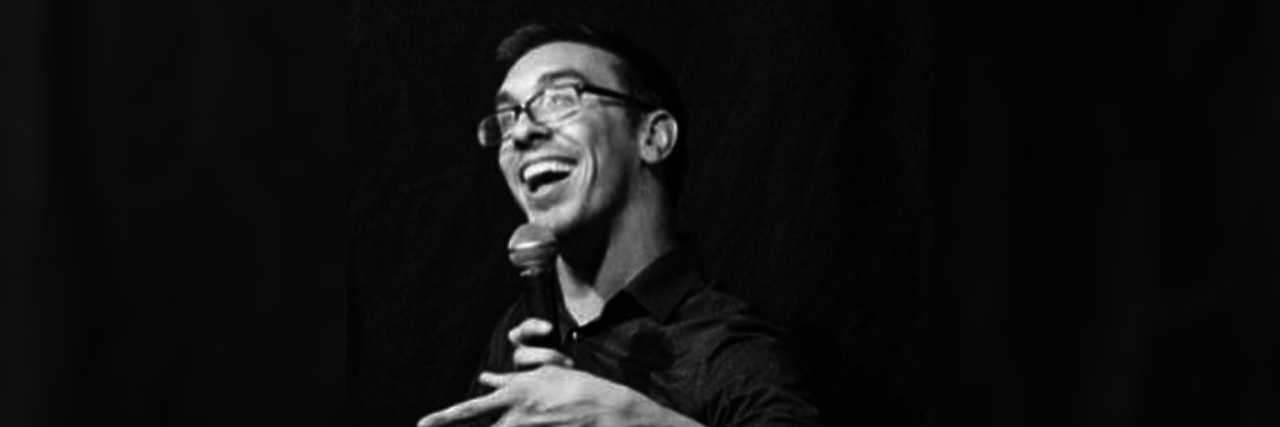My name is Martin Phillips. I am a stand-up comedian based in D.C., though I have performed all over. I have performed at different festivals, one of them being the Los Angeles Diversity in Comedy Festival. Comedy, like a lot of industries, has an influx of straight white men. To be honest, I cannot scold this group too much because I am a straight white male, except I have muscular dystrophy, so I am a little different. Comedy producers try very hard to diversify their line-ups on shows. This isn’t to say a comedian gets booked solely based on their race or gender or whatever minority they belong to. The process is to give an opportunity and a voice to talented comedians who are overlooked sometimes because they part of a marginalized community. It’s great to have such inclusion on comedy shows.
I do believe one group is still being overlooked, though — disabled comedians. When lineups are put together it seems as though the disabled voice is never included or even considered. The idea is to give opportunities to certain comedians who may not regularly receive them, and disabled comedians continue not to get such opportunities. This a reason why, at least where I live in D.C., there are just not that many disabled comedians. I only know of a handful who have a known disability. Of course, there could be many more with a less-visible disability.
Currently, during this pandemic, there are mainly outdoor shows on patios and in backyards. Before the pandemic, in D.C., a majority of comedy venues were not disability accessible. Most were either downstairs or upstairs, with no elevators available. Actual comedy clubs are often accessible, but when you start pursuing comedy, you will not be performing at the big clubs. You start at the smaller venues, which are mostly bars. With most not being accessible, it can be unwelcoming for a disabled person who is interested in being a comedian. Perhaps many talented disabled comics do not want to deal with the hassle.
Regardless, this accessibility issue also affects the audience demographic. Not only do disabled comics not feel welcome, but disabled people in general. This actually loses money for the show. I am not a comedy producer, and I’m sure finding a venue for a show is difficult. However, in the current age, accessibility should be prioritized.
I started to think about it and there are no extremely famous disabled comedians, no Kevin Hart equivalents. And the disabled comics that are well-known have an entire act that pokes fun at their disability. For some reason, it does not seem to be acceptable for a disabled comedian to have a regular act without mentioning how they look. I have written about this in my previous article — I don’t discuss my disability in my comedy, which is unusual. In general, a disabled comedian is rarely seen on TV or Netflix or movies. When one is seen on a national platform, it is usually on a talent show and they are used to inspire. Maybe disabled people are just not fully accepted in the comedy industry.
There is a way to start fixing this problem. Once the pandemic is over and we hopefully go back to normal life and comedy shows come back, accessible venues should be a priority. Then the disabled community can be able to attend. This article is not an attempt for me to be put on more shows, but if you want to, that’s cool! I am only saying if people are actively trying to provide an outlet for all comedians, disabled comedians and disabled comedy fans need to be considered. Representation matters and there is a lack of disability representation in comedy.

